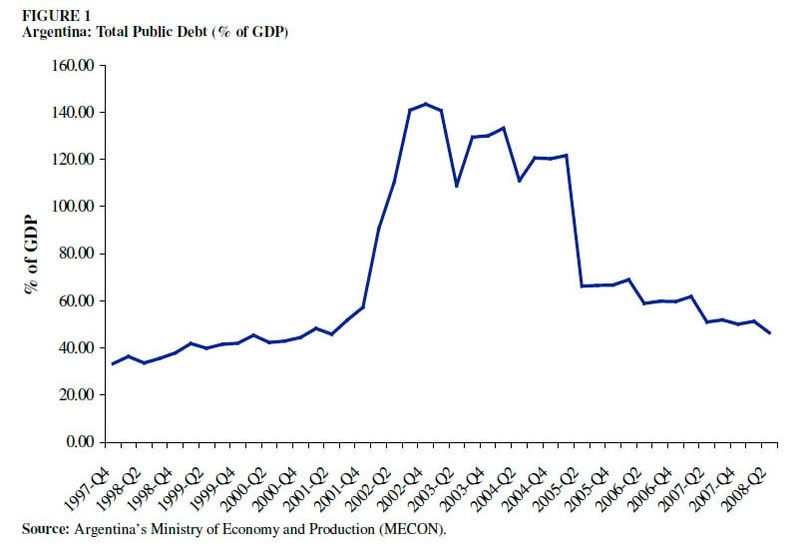 Blatantly ignoring everything we know about Argentina, Robert Plummer somehow manages to turn the success story of its 2001 sovereign default into a cautionary tale for Greece.
Blatantly ignoring everything we know about Argentina, Robert Plummer somehow manages to turn the success story of its 2001 sovereign default into a cautionary tale for Greece.What’s going on with the BBC? I always assumed it to be a globally respected institution, bringing us fairly objective, high-quality reporting from around the world. And they make great documentaries too! So what went wrong? Why are they suddenly starting to peddle all these crazy myths about Greece?
In a truly appalling piece of journalism, BBC business reporter Robert Plummer yesterday wrote that “if Greece is to go down the route of Argentina,” which many sane commentators — including Nobel laureates like Amartya Sen, Joseph Stiglitz and Paul Krugman — consider to be its best option, “it will have to leave the euro and default on most of its debt.”
But, Plummer adds, “this scarcely looks attractive, since Argentina is still being penalised for its own default. Although it has already struck deals with the majority of its creditors, it remains unable to borrow on world markets.” Indeed, Plummer argues that “Greece’s problems can be properly resolved only by years of painful structural reforms.”
Now, while these words may sound reasonable to a layman’s ears, the blatant historic revisionism behind them is literally painful to read for anyone who is familiar with the facts on either the Greek or the Argentine crisis. Structural adjustment failed. It failed painfully. Horribly. It destroyed nations. It crashed markets. It impoverished millions.
In fact, Argentina’s default in 2001 was a major success story, and marked the start of one of the most spectacular turnarounds in any country’s economic history. Argentina’s default allowed the country to return to growth levels that were simply unimaginable as long as the country remained shackled to the IMF’s brutal loan conditionality.
The conditions that the IMF imposed upon Argentina (austerity and structural reform) led to the exact same outcome as they are causing in Greece today: economic collapse combined with a humanitarian tragedy and total social disarray. Sooner or later, Greece will be forced to default — just like Argentina. And it will be for the better.
Why, you may ask? Well, I’ll allow a Nobel Prize-winning economist to explain that to you. Shockingly, the BBC is not the only major media outlet with a factually illiterate editorial board. The New York Times published a similarly flawed piece last week, but thankfully, NYT columnist Paul Krugman was quick to jump in and correct his own newspaper:
Don’t Cry for ArgentinaJust in case you’re still not convinced, let’s bring in Mark Weisbrot, Co-Director of the Center for Economic and Policy Research and one of the world’s leading experts on the Argentine crisis of 1998-’01. Check out this article of his from 2008 – what a refreshing experience to see someone providing factual evidence to back up their claims!
OK, I guess I don’t quite see how Argentina’s default, of all examples, can be viewed as a cautionary tale for Greece:
IMF World Economic Outlook databaseArgentina suffered terribly from 1998 through 2001, as it tried to be orthodox and do the right thing. After it defaulted at the end of 2001, it went through a brief severe downturn, but soon began a rapid recovery that continued for a long time. Surely the Argentine example suggests that default is a great idea; the case against Greek default must be that this country is different (which, to be fair, is arguable).
I was really struck by the person who said that Argentina is no longer considered a serious country; shouldn’t that be a Serious country? And in Argentina, as elsewhere, being Serious was a disaster.

I think these two graphs speak for themselves. If the BBC is serious about continuing to provide objective, high-quality journalism, I would strongly recommend them to sack Mr Plummer — or at least to send him to a basic economics class. I never heard such shocking nonsense coming from such a respected broadcaster before.
The Libyan state TV would be jealous.


No hay comentarios:
Publicar un comentario